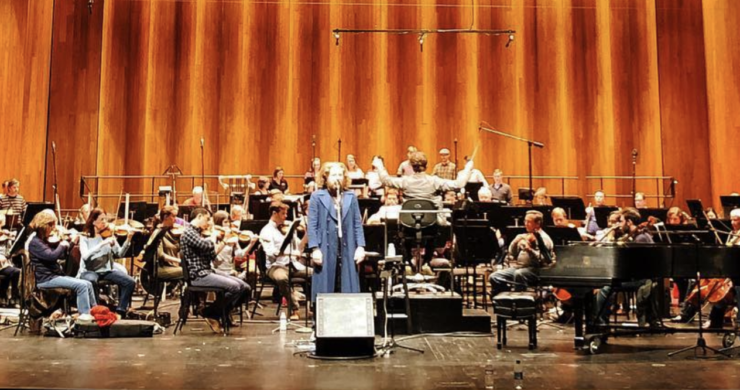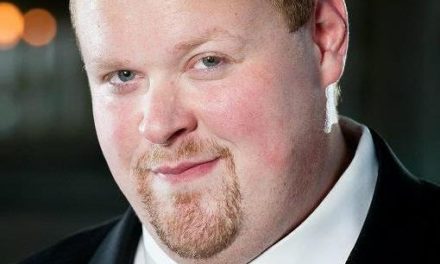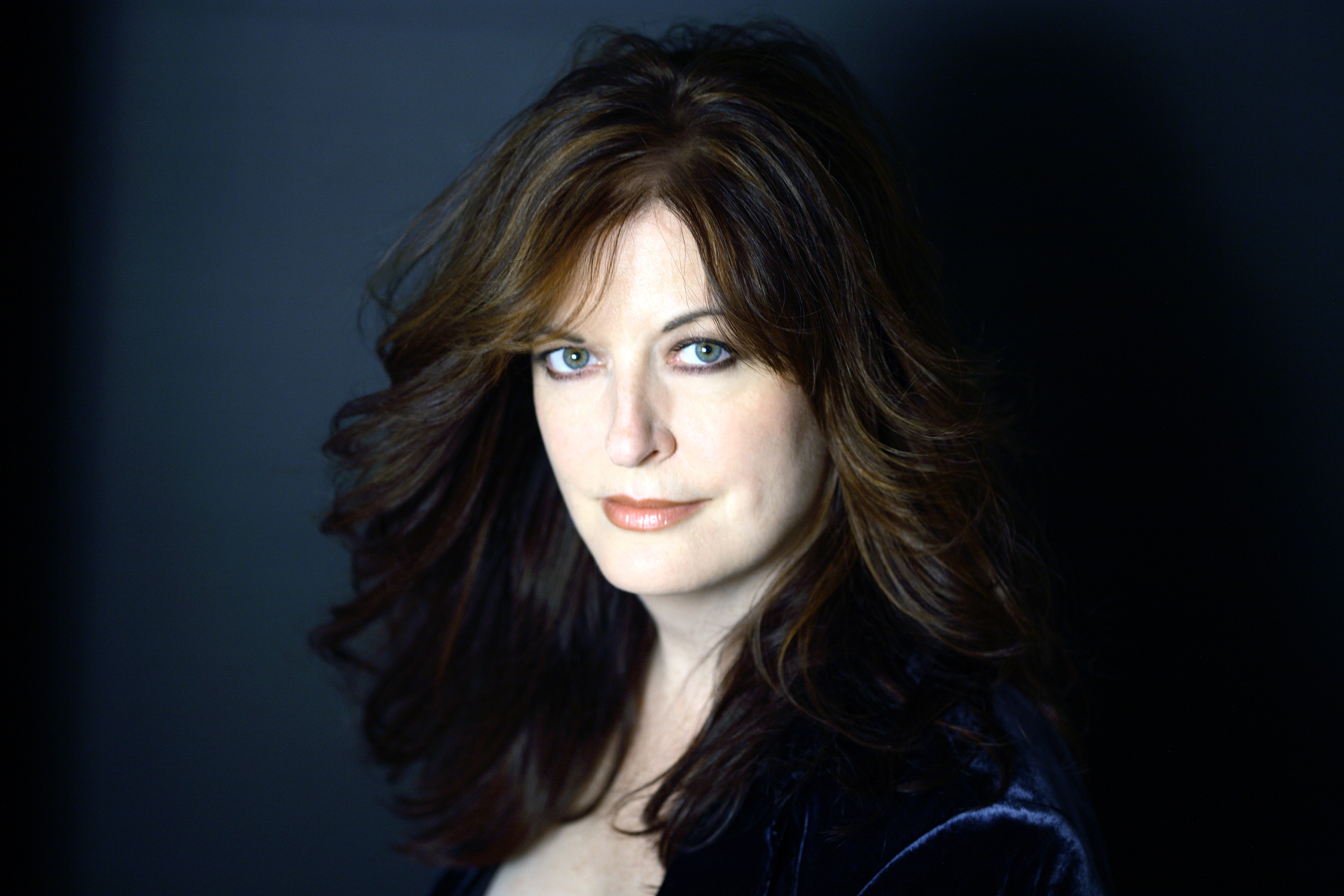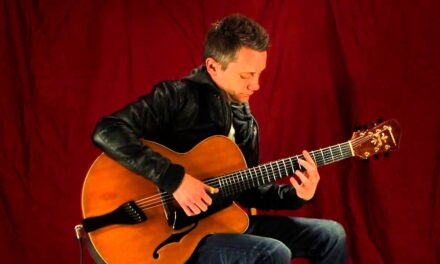Photo: Jim James’ Instagram
PLAY: Festival of American Music 2
Teddy Abrams, conductor
Gabriel Globus-Hoenich, percussionist
Steiger Butte Singers + Drummers, guest artists
Kent Hatteberg and the University of Louisville Collegiate Chorale – Chorusmaster and Chorus
Jim James, guest vocalist
Review by Annette Skaggs
Entire contents are copyright © 2018 Annette Skaggs. All rights reserved.
During the first half of the Louisville Orchestra’s Festival of American Music (March 25), audiences were introduced to Kentucky infused/inspired music with guest musicians such as Joan Shelley, Tyrone Cotton, Lizzie No, and Michael Cleveland + Flamekeeper. It was certainly a well-curated and entertaining weekend of music that tickled the ears and made one swell with Kentucky pride.
This past weekend audiences were treated to Part Two of the Festival that featured works from Julia Wolfe and Michael Gordon. Perhaps the highlight of the evening was the World Premiere of a song cycle created by Louisville’s own musical son, Jim James, and arranged by Teddy Abrams.
Let’s begin with Julia Wolfe’s complex “riSE and fLY”, featuring percussionist Gabriel Globus-Hoenich on body and buckets. Yes, you read that correctly, body and buckets. Mr. Globus-Hoenich is a graduate of the prestigious Curtis Institute of Music (much like our esteemed Maestro) and has been a featured artist with organizations such as Philly Pops and the Detroit Symphony. He also serves as an education director for the GardenMusic festival in South Miami. With a rich Jazz and orchestral background, Mr. Globus-Hoenich was able to express strong musical dexterity and strength in Ms. Wolfe’s piece. With inspirations gathered from the sounds of New York City, “riSE and fLY” is a blend of urban meets folk meets orchestra. Much like the great musician Bobby McFerrin, Ms. Wolfe and Mr. Globus-Hoenich recognize that the human body has the ability to create some fantastic variants of percussion. The rubbing of hands that sound similar to a bird beating its wings, gives rise to the beating of the chest cavity that resonates and doubles a steady pulse created within the cellos and violas. As the body continues to provide a rhythm section, the orchestra comes alive with city noise: sudden blares of off-color blasts from the brass section resemble the sound of vehicle horns, woodwinds and strings provide various other clamors that can be found within the city. These are not like the sounds from the classic “An American in Paris”, but something a bit grittier. As Mr. Globus-Hoenich changes his placement he moves to a chair that is surrounded by plastic buckets, a muted snare drum, cowbell, high top, and tambourine. Not your usual drum kit, to be sure, but it most definitely fits within the structure of the city scene, where street musicians are found on almost every corner. The amount of strength and energy that Mr. Globus-Hoenich gave to his performance was electric and even caused two of his buckets to develop holes from the intensity of the work. While the end of the piece reminded me of the cacophonic ending of The Beatles “A Day in the Life”, “riSE and fLY” had a thrilling climax and ending to go with an unusual and entertaining arrangement.
The second selection of the evening, Michael Gordon’s “Natural History”, was, in a word, mesmerizing. A commissioned work by the Britt Music & Arts Festival (which Mr. Abrams is intimately involved with), the piece was written as a celebration of the National Park Service’s centennial. Maestro Abrams shared with the audience that Mr. Gordon was influenced by Crater Lake National Park in both summer and winter and was introduced to the Klamath Tribe’s Steiger Butte Drum while working in Chiloquin, Oregon. It was through the beauty of the park, the sacred pageantry of the Steiger Butte Drum, and the writings of Henry David Thoreau that Mr. Gordon gained his vision for “Natural History”. As the Maestro was talking, I noticed that the doors of Whitney Hall began to open and shortly thereafter, members of our Louisville Orchestra’s brass and percussion were scattered around the hall, grand tier and balcony and at the ready. As our Spatial Instruments were setting themselves up, the members of the Steiger Butte Singers + Drummers made their way to the stage, bringing with them mementos of their tribe such as cloths, jewelry, and a stunning tribal drum that sat in the middle of the circle that they had formed. And just when you thought that there would be enough sound, the University of Louisville Collegiate Chorus led by Kent Hatteberg made their way to the stage. All in all, there were around 140 musicians.
With a small orchestral introduction, Maestro Abrams nodded to the Steiger Butte Singers and a tribal chant began. Unfortunately, I do not know the language, but I believe one can infer that what was being said was something deeply rooted within our guests’ beliefs. Perhaps the chant was a song about their giiwas, or Sacred Place. Maybe we were being told of the battle of good versus evil. No matter what the words were, it added an element unlike any other, especially when the beating of the tribal drum commenced.
Knowing some of the history and backstory of the arrangement, one could hear “nature sounds”, but you could also hear what I would consider to be a nod to violence, a tornado, a tribal war, white man against red man? I sensed that this would fit within the realm of the story of the National Parks. Just as quickly as a violent theme would erupt, the Collegiate Chorus would come in and deliver a calm and serene line. Unfortunately, because of the larger than usual sound that was being made by instrumentalists, it was very difficult to hear choral nuances. I would have liked to understand the lyrics to the chorus.
Mr. Abrams, when talking about this work from the podium, said that this is a piece that is hard to explain, hard to define, hard to place. He is absolutely right. While there were elements within that had what I would consider the bones of what we consider classical writing or style, it would soon get flipped and turned into something that is unclassifiable. I sat in my seat with rapt attention to every note, every instrument that performed, and was entranced by the Steiger Butte Singers + Drummers. I read a passage about this piece, within the evening’s program, that reflects my feelings about the work better than anything that I could have said: upon listening to the work, the Chairman of the Klamath Tribe, Don Gentry, had this to say: “I could almost envision the sounds of our ancestors reverberating through the ages”. While I am not Klamath, I could certainly appreciate the American Indian spiritual nature of this piece and how it affected my own Cherokee/Iroquois heritage. How wonderful it was that upon the last stroke of the Maestro’s baton, the entire audience rose to their feet with deep appreciation for what they had just experienced.
So, this audience, that we learned from Executive Director, Andrew Kipe, during his curtain speech, was a little different than we’ve seen before. Within the audience there were the usual Louisville Orchestra loyalists but also the devoted fans of musician Jim James, the lead singer and multi-instrumentalist of My Morning Jacket, the thrice Grammy nominated rock group born out of Louisville. With a world-wide reach and deep connections within the music and film world, Mr. James’ has a large following and many of his fans traveled from far and wide to Louisville to hear the World Premiere of his latest work: The Order of Nature: A Song Cycle, a collaboration with Mr. Abrams.
Most of the songs within the cycle were written and composed by Mr. James while Mr. Abrams made the orchestral arrangements, save for ‘The Human Touch” by Charles Reuben and “Who Am I?”, which was based on Leonard Bernstein.
Mr. James walked on stage wearing a long blueish coat, sunglasses and carried a horsehair bow that I believe was owned by his Aunt Betty Cheeseman, who was a member of the Louisville Orchestra for 28 years playing upright bass, and for whom the performance was dedicated to. Joined by a handful of vocalists to lend support, the song cycle contains nine songs: “Walking in the Snow”, “Here in Spirit”, “Human Touch”, “In Demand”, “Back to the End of the World”, “Who Am I?”, “Over and Over”, “Set It to Song” and “Same Old Lie”.
I won’t expound on each song, but I will share some highlights of the arrangements, starting with “Walking in the Snow”. A lovely piece that sets the tone for the cycle and how nice to hear an instrument that isn’t too commonly played in an orchestral setting: hand bells. I admit that I’ve been a fan of Jim James’ work since his early days and am familiar with his writings and style, especially when some of the songs within the cycle have been playing on the radio, such as “Here in Spirit”. What a cool new way to listen to this song with an orchestral background. Charles Reuben’s “Human Touch” had a beautiful harp accompaniment with simple piano chords to fill in. While the orchestration for “In Demand” was exciting, the choral assembly was muffled.
As “Back to the End of the World” began my ears perked up and my eyes began to scan the scope of the stage: was that a Theremin or a synthesizer? All I know is that that was a very cool sound, the whole of the piece reminiscent of a 1950’s love song.
The lead in to “Who Am I?”, based on Leonard Bernstein, was reminiscent of “The Age of Aquarius”, which fit perfectly to the short pause that was given for Maestro Abrams to sit at the grand piano and wow us with his accompaniment to Mr. James’ soulful musical delivery, prompting a rousing bit of applause thereafter.
“Over and Over” had an upbeat-jazzy feel and great solo work by principal violinist Gabriel Lefkowitz with support from the lower strings and percussion. Light and lyrical “Set It to Song” was a perfect earworm and the political-leaning “Same Old Lie” had a really fun and flourishy finish to the cycle.
As I ran into the Louisville Orchestra’s Director of Marketing and PR Michelle Winters after the program I mentioned to her that I would have loved to see the scores for the three works that we were witness to that evening. As she agreed I shared with her my reasons why as I will share them with you, dear reader. The evening’s concert contained some of the most difficult music that I have heard the Louisville Orchestra perform. With the magnitude of different styles and absolute need to pay attention to Maestro Abrams because of how many moving parts there are (similar to the Bernstein Mass) and the execution of such challenging music, our Louisville Orchestra and guest musicians delivered a performance that will not be soon forgotten.
Bravi Tutti!!
PLAY: Festival of American Music 2
April 7, 2018
Louisville Orchestra
Kentucky Center for the Arts
501 West Main Street
Louisville, KY, 40202
502-589-7777
Louisvilleorchestra.com
Annette Skaggs is heavily involved as an Arts Advocate here in Louisville. She is a freelance professional opera singer who has performed throughout Europe and in St. Louis, Cincinnati, Boulder, Little Rock, Peoria, Chicago, New York and of course Louisville. Aside from her singing career, she has been a production assistant for Kentucky Opera, New York City Opera, and Northwestern University. Her knowledge and expertise have developed over the course of 25+ years’ experience in the classical arts.





